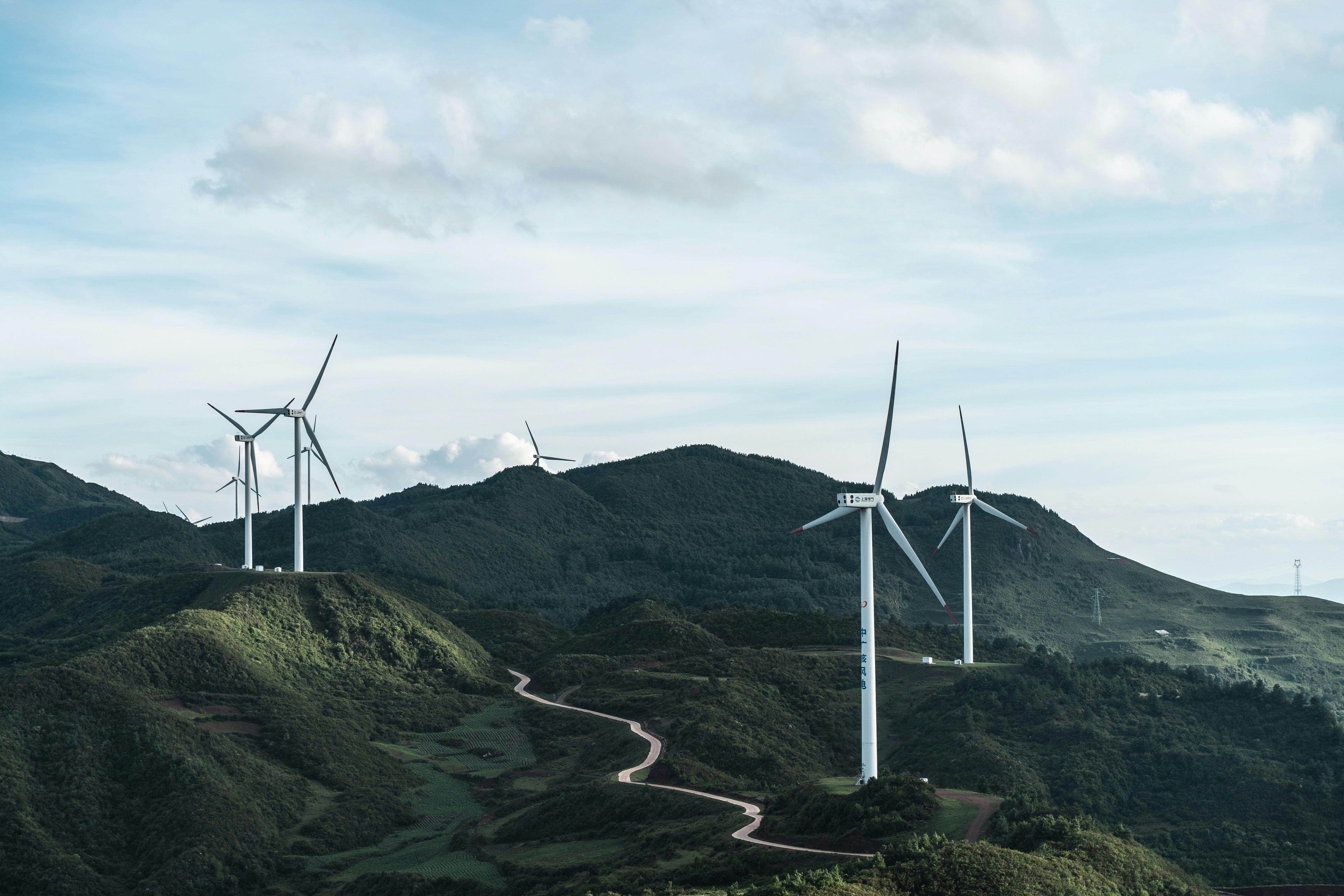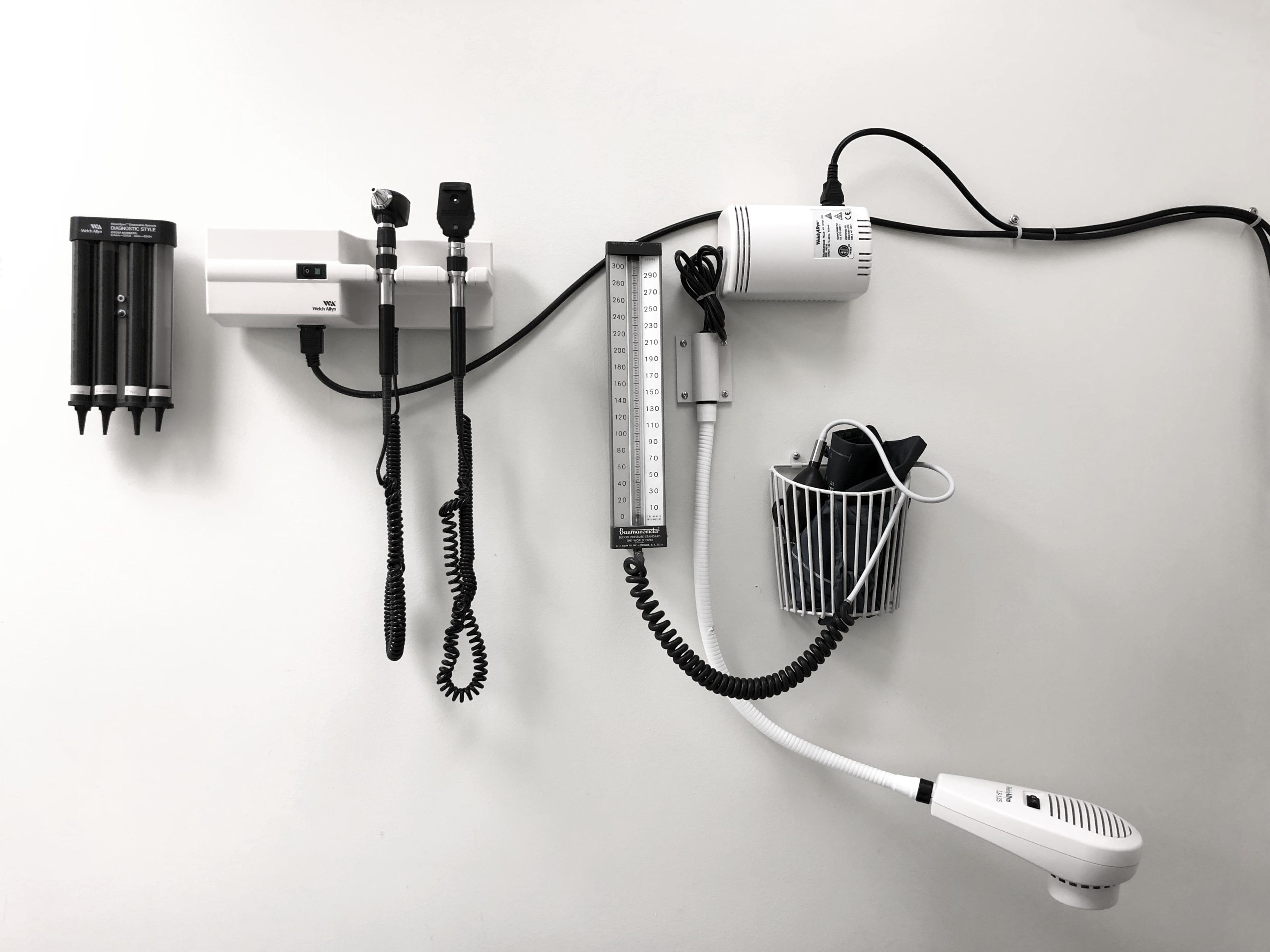Explore new ideas and analysis on pressing policy and economics problems
Read our latest reports


The Fragmentation Tax
Australian retailers operate across a patchwork of inconsistent state and territory regulations that, left unchecked, will cost the economy $26 billion and households $9.4 billion over the next decade. Commissioned by the Australian Retail Council, this Mandala report finds that regulatory fragmentation in retail - Australia's second-largest employer, generating $649 billion in economic activity annually - is compounding the country's productivity crisis at the worst possible time. The report identifies specific issues in transport and logistics, and packaging and waste as priority areas for reform, where harmonisation alone would inject up to $1.65 billion into the economy over 10 years. It recommends the Federal Government use its National Competition Policy framework to drive reform - including a $260 million increase to the National Productivity Fund, a new National Harmonisation Council, and a mandate that Regulatory Impact Statements explicitly quantify fragmentation risks.
23 Feb, 2026


Reforming Victoria's Windfall Gains Tax
Victoria's Windfall Gains Tax (WGT), introduced in July 2023, has compounded a decade of new and increased property taxes that have made Melbourne the most costly major city in Australia for development. Commissioned by the Property Council Victoria, this Mandala report finds that developer taxes and charges now account for 18% of total costs on Melbourne developments - double the rate of Sydney - and that the average WGT liability pushes project returns below the viability threshold. The analysis estimates that removing the WGT could unlock $1.4 billion in additional annual investment, support 2,700 jobs and deliver the equivalent of 3,100 new homes per year by 2030. The report also presents a suite of targeted reforms across financial relief, predictability, and policy alignment that would restore investor confidence while balancing the government's revenue objectives.
23 Feb, 2026


Restoring affordable access to specialist care in Australia
In this report, Mandala and Private Healthcare Australia (PHA) studied the affordability of specialist care in Australia. We find that specialist fees are rising, exacerbating cost-of-living pressures on consumers and worsening the affordability of healthcare. We propose a targeted package of measures to improve consumers' ability to access high-quality care, of their choosing, at fair and transparent costs.
3 Feb, 2026


Critical Minerals Strategic Reserve Design
Mandala's latest report for the Association of Mining and Exploration Companies (AMEC) sets out an industry-informed approach to implementing Australia’s Critical Minerals Strategic Reserve, with a focus on rare earths critical to national security and the energy transition. Bringing together 10 Australian rare earth developers, and drawing on international precedents and economic analysis, the report recommends a commercially viable and fiscally sustainable model to support new investment in Australia’s rare earths sector while managing risk to taxpayers.
12 Jan, 2026


The Value of Online Payments to New Zealand Businesses
Mandala partnered with Stripe on a research report based on the findings of a survey of 200 New Zealand businesses around the value of online payments and opportunities for future innovation.
18 Dec, 2025


Optimising Australia’s Specialist Investment Vehicles for the Net Zero Journey
Mandala, in partnership with IGCC, explores how Australia’s Specialist Investment Vehicles (SIVs) are deploying public capital to accelerate the net zero transition. The report examines the current funding landscape, identifies structural challenges that limit the effectiveness of public investment, and sets out a pathway to evolve the SIV system into a more coordinated, capital-led model aligned with national priorities.
10 Dec, 2025


$160 billion and counting: The cost of Commonwealth regulatory complexity
Our latest research for the Australian Institute of Company Directors (AICD) reveals Australia’s growing regulatory burden. The cost to businesses of complying with federal regulation has risen to $160 billion (5.8 per cent of GDP), up from $65 billion (4.2 per cent of GDP) in 2013. More complex laws are contributing to the increase in costs and redirecting business resources away from growth and innovation. Board time on compliance has doubled from 24 percent to 55 percent in 10 years, while the external legal spend now sits at $16bn up from $6bn in 2010. While the UK, EU, Canada, New Zealand and US are simplifying regulation to drive growth, Australia risks falling further behind without taking immediate policy action.
2 Dec, 2025


Data Centres as Enabling Infrastructure
Mandala’s latest research, commissioned for Data Centres Australia by AirTrunk, Amazon Web Services, CDC Data Centres and NEXTDC, shows that data centres are key drivers of economic growth, renewable energy investment, and sustainable water solutions. The report finds that data centres use relatively modest amounts of energy and water while generating significant economic value, investing in power and water infrastructure that benefits communities, and helping to accelerate Australia’s clean energy transition.
25 Nov, 2025


Attracting international capital
International investment has powered Australia's property sector, with international investors providing $1 in every $3 of institutional property investment over the past ten years. Yet in recent years, Victoria and Queensland have introduced additional taxes on these investors. This report examines a critical question: are these taxes deterring the investment Australia needs to build cities, create jobs, and support economic growth? Commissioned by the Property Council of Australia, the analysis reveals that Victoria has seen global institutional investment plummet by 53% since 2022, coinciding with rising tax rates. Queensland shows similar stagnation despite strong economic conditions. Through economic modelling and case studies of stalled projects - from student accommodation to industrial estates - the report quantifies what removing these surcharges could mean for Australia's economic future and competitiveness in attracting international capital.
24 Nov, 2025


Private Capital: Australia's Untapped Opportunity
Our latest research commissioned by the Australian Investment Council reveals regulatory barriers are constraining superannuation investment in private equity and venture capital (PEVC), costing retirees up to $20,000 and the economy 140,000 jobs. Despite PEVC delivering returns 10.8 percentage points higher than listed equity, Australian super funds allocate just 4.4% versus 14% for top global pension funds. Fixing the distortionary effects of RG 97 and Your Future Your Super would improve member outcomes and grow the pool of capital for Australian projects.
18 Nov, 2025


Advancing innovation and productivity in the care sector
Our latest research commissioned by Kismet Healthcare examines opportunities to advance innovation and productivity in Australia's care sector through targeted technological solutions. We identify four high-impact, low-risk opportunities that could deliver over $2 billion in annual productivity gains in the NDIS alone. This study highlights the need for governments to establish a strong digital care ecosystem to preserve the benefits of quality care while addressing rising demand from Australia's aging population.
10 Nov, 2025


Small Business, Big Opportunity: How AI is transforming hiring and unlocking talent
Our latest research in collaboration with LinkedIn examines how AI-enabled hiring can address persistent workforce challenges facing Australian small and medium-sized enterprises (SMEs) and operationalise a 'skills-first' approach that prioritises a person’s capabilities over traditional proxies such as degrees or past job titles. Through case studies, product examples and data insights, this report shows how a responsible use of AI can open talent pathways, reduce bias in hiring and create a more inclusive future of work.
15 Oct, 2025


Diverse alternative infrastructure for competitive Australian capital markets
Our latest research in partnership with FinClear identifies potential challenges with traditional markets, specifically for small cap firms. This study examines trade data from the ASX to demonstrate the ongoing liquidity challenges for small cap firms, which could be addressed by alternative capital market infrastructure.
13 Oct, 2025


Unlocking the productivity dividend of digital government in New Zealand
Our latest research in collaboration with Microsoft examines how cloud infrastructure can unlock substantial productivity gains for the New Zealand Government. This study reveals that the Government could unlock $360 million a year in fiscal savings and productivity gains to 2035 through public cloud's efficient use of IT labour and infrastructure. We find that government agencies can reduce their IT budgets by 12 to 25 per cent through 2035, while delivering enhanced cybersecurity, operational resilience, and service delivery across the public sector.
15 Oct, 2025


Prevention pays: Cutting the cost of dental hospitalisations
Outlining the scale, impact and solutions to preventable dental hospitalisations in NSW.
17 Oct, 2025


Bridging the gap: the opportunity for Australian pension capital in the UK and Europe
In partnership with IFM Investors and Super Members Council, Mandala has developed a new report highlighting the growing role of Australia’s pension capital in the United Kingdom and Europe. This builds on the landmark report, 'Going Global: Unlocking the growth potential of Australian pension capital', released earlier this year by the same partnership. The UK and European Union (EU) together represent the second-largest international destination for Australian pension capital after the US.
15 Oct, 2025


Consent Counts
Outlining the role and social value of specialist educators in Australia's high school Consent and Respectful Relationships (CRRE) curriculum.
7 Oct, 2025


Unlocking the productivity dividend of digital government in Australia
Our latest research in collaboration with Microsoft examines how cloud infrastructure can unlock substantial productivity gains for the Australian Government. This study reveals that the Government could unlock $1.4 billion a year in fiscal savings and productivity gains to 2035 through public cloud's efficient use of IT labour and infrastructure. We find that government agencies can reduce their IT budgets by 7 to 28 per cent through 2035, while delivering enhanced cybersecurity, resilience, and service delivery across the public sector.
2 Sep, 2025


Unlocking Australia's R&D potential
Our research in collaboration with Atlassian, the BCA and Cochlear sets out a path forward for Australia to realise its R&D potential. Australia’s productivity growth is at a 60-year low, driven in part by declining business investment in R&D. Our latest report highlights the critical role large businesses play in Australia’s innovation ecosystem and the urgent need for policy reform. Despite strong talent and institutions, Australia underperforms global peers due to high costs and uncompetitive incentives. The report outlines six targeted reforms - including simplified R&D tax incentives and a commercialisation premium - that could together generate $7.7 billion in annual economic output and lift productivity by 0.1%, with a fiscally neutral impact. With the Strategic Examination of R&D underway, this is a pivotal opportunity to restore Australia’s innovation edge.
28 Jul, 2025


Digital platforms and competition in Australia
Our latest research in collaboration with Apple examines proposals to introduce an ex ante competition framework for digital platforms in Australia by assessing digital platform regulations in international jurisdictions. We find that jurisdictions that have implemented ex ante regimes have experienced implementation challenges, with consequences for users and the economy. This study highlights that the need for regulatory regimes to preserve the benefits delivered by platforms while maintaining the flexibility to adapt to rapidly evolving technologies.
24 Jul, 2025


Climate Risk Index for the European Energy Sector
Mandala Partners in partnership with Zurich Resilience Solutions has produced Europe's first comprehensive Climate Risk Index for renewable energy infrastructure across five major European markets. This groundbreaking analysis reveals the scale of climate vulnerability facing Europe's clean energy transition and provides actionable insights for building resilience across France, Germany, Italy, Spain, and the UK. Nearly half of Europe's renewable generation capacity is in critical climate risk categories, threatening the foundation of the continent's energy security and economic stability.
16 Jul, 2025


Shock Resistant
Shock Resistant outlines novel insights into the ways that platform workers in the US used platform work as a strategy for mitigating the impacts of the pandemic and cost of living crisis.
2 Jul, 2025


AI in Australia Economic Blueprint
OpenAI’s Economic Blueprint outlines how Australia can harness artificial intelligence (AI) to significantly boost economic prosperity, enhance public services, and position itself as a leader for AI in the Indo-Pacific region.
30 Jun, 2025


The economic and strategic importance of multi-metals processing
Mandala was commissioned by Nyrstar to provide an independent summary of the significance of lead and zinc refining in Australia. This report finds that Australia’s existing capabilities are a gateway to domestic critical minerals processing, but fundamental shifts in the global industrial policy landscape are undermining Australia’s current and future processing capabilities.
27 May, 2025


Reducing out-of-pocket costs for Australian healthcare consumers
In partnership with Private Healthcare Australia (PHA), our latest report reveals the increasing strain of out-of-pocket healthcare costs on Australian consumers. Without urgent action, these costs could reach $1.6 billion by 2030, driven by limited competition, lack of price transparency, and weak consumer protections. Costs have already surged 12% in the past year, and 330,000 Australians are expected to delay care due to affordability concerns. Transparent pricing and stronger protections could save consumers millions. Read our full analysis to understand the challenges—and the solutions—that could make healthcare more accessible for all.
27 Mar, 2025

20-years of Fitted for Work driving employment success
To mark 20 years of Fitted for Work, Mandala Partners conducted an economic analysis to quantify the organisation’s impact. Our findings show that for every $1 invested, Fitted for Work delivers $2.19 in immediate economic benefits, unlocking $86 million in value over two decades by supporting 45,000 clients. The analysis highlights that Fitted for Work reduces job search duration by half compared to the national average, significantly improving employment outcomes. Notably, the organisation has expanded its support for older women, addressing a critical and growing need in the community.
27 Mar, 2025

The Social Dividend: An Actuarial Case for Higher Income Support
Our new report quantifies the social returns and efficiency savings of investing in JobSeeker. Using actuarial techniques, micro-data analysis, and leading econometric research, we quantify the broader benefits of raising JobSeeker to 90% of the Age Pension. Our findings show that every $100 invested delivers a $24 social return, improving health outcomes, reducing justice system interactions, and lowering long-term welfare dependence. Importantly, the efficiency savings outweigh any potential reduction in job search intensity. This report provides new insights into why increasing JobSeeker is both a smart investment and a necessary reform.
27 Mar, 2025


Smarter incentives, more homes
Mandala, in partnership with the Property Council of Australia, has released a landmark report examining the economic benefits of achieving the National Housing Accord's 1.2 million new homes target by the end of FY2029. Our analysis reveals current projections fall 40% short of this ambitious goal. Successfully meeting the target would deliver substantial benefits: reducing weekly rents by $90 in well-located areas, moderating price growth, generating $128 billion in economic activity, and supporting 368,000 jobs annually. While the Australian Government's $3 billion New Homes Bonus incentive scheme establishes a strong foundation, our research identifies opportunities to enhance its effectiveness. The current retrospective payment structure and high thresholds limit jurisdictional engagement with the scheme. Mandala recommends a refined approach including earlier payments, extending the program timeframe, doubling funding, improving transparency through robust reporting, and strengthening federal leadership.
11 Mar, 2025


The value of shifting to four-year parliamentary terms
This research quantifies significant benefits of extending Commonwealth House of Representatives' terms from three to four years. While Australia's states and territories have adopted four-year terms, the Commonwealth remains among only eight countries globally with three-year or shorter terms.Our analysis shows potential gains of $59-71 billion over 20 years through reducing election frequency. Benefits include $4.6 billion in avoided direct costs, $40.7 billion in enhanced business investment from reduced electoral uncertainty, and $14-26 billion through improved government policy.
17 Mar, 2025


Going global: Unlocking the growth potential of Australian pension capital
In partnership with IFM Investors and Super Members Council, Mandala has developed a landmark report highlighting the growing contribution that Australia’s retirement savings and pension system has on investments globally. Australia has one of the world’s largest pools of retirement savings with the country’s pension assets totalling approximately US$2.8 trillion. Australian pension funds are forecast to invest trillions of dollars in international markets by 2035 as they scour the globe to deliver the best investment returns for their millions of members, with the US coming out as the top investment destination. According to this new report, Australian pension fund investment in the US is expected to more than double over the next decade - from US$400 billion to over US$1 trillion.
23 Feb, 2025


The Zurich-Mandala Climate Risk Index: The impact of climate change on Australia's schools
For the first time, the Zurich-Mandala Climate Risk Index has been used to analyse the risk of climate change to 9,829 primary and secondary schools across Australia. The index uses IPCC climate modelling along with Zurich's proprietary climate impact assessments to understand the unique risks faced by individual schools. Extreme heat is projected to reduce writing, spelling, grammar & punctuation, and numeracy by over 7% in some parts of the country by 2060, with students in the Northern Territory and Queensland disproportionately impacted. Two-thirds of schools in Australia currently face high climate risk. This is set to increase to 84% of schools by 2060 under an intermediate climate scenario with 2 degrees Celsius of warming. Australian students are projected to experience 34 annual heatwave days by 2060.
2 Feb, 2025

Unlocking Growth: How Fintech Payment Solutions Empower Small Businesses
Small businesses have been among the biggest beneficiaries of the transition to fintech-powered modern payments systems, with the average benefits across all fintech solutions totalling $9 billion as a result of their adoption. Of the $9 billion in net benefits, $8 billion has come from increased revenues by adopting these services, and $1 billion from reduced costs. Notably, over 30% of businesses reported an increase in revenue of over 2.5% as a result of adopting a fintech payment solution.
31 Jan, 2025


Realising WA's green iron potential
Mandala has collaborated with the Chamber of Minerals and Energy Western Australia to launch a landmark report highlighting the immense decarbonisation and economic benefits of green iron produced in WA. Large-scale production of green iron in WA could reduce global emissions by 1.2 per cent by 2050 – effectively offsetting nearly every tonne of CO2 currently produced in Australia – while generating $74 billion in economic value and supporting 19,600 direct jobs. Green iron represents an opportunity for Western Australia to play a leading role decarbonising the emissions-intensive steelmaking process.
6 Jan, 2025


Growing Australia's iron advantage
Our latest report, commissioned by Boundless, presents new research that reveals Australia's ability to competitively supply 20% of global green iron by 2050. This would reduce global steel emissions by 1.7% - surpassing Australia's current total emissions of 1.2% - while adding $103 billion to the economy and supporting 27,500 direct jobs. However, realising this opportunity requires addressing significant challenges including a significant build out of renewable energy generation, storage and transmission and the commercialisation of green iron technologies. Urgent policy support is needed to address these challenges and unlock private investment.
28 Nov, 2024


The Australian Health and Medical Research Workforce Audit
The Australian Health and Medical Research Workforce Audit provides a detailed snapshot of Australia’s health and medical research workforce, highlighting its characteristics, career pathways, and challenges. Drawing on desktop research, surveys, and profile analysis, the report reveals that approximately 39,690 researchers work in the field, with 65% in traditional university and institute roles and 33% in private and clinical settings. Although women make up 52% of the workforce, only 25% hold senior positions, indicating a gender gap in leadership. Over 40% of researchers are from overseas, adding diversity and global connections, while Victoria employs the most researchers, with a notable underrepresentation in regional and remote areas. Despite a shared passion for research and societal impact, many researchers face challenges with funding and job security, and in the past five years, over 60% have moved into non-research roles where they continue to contribute as leaders and managers in related fields. This audit provides valuable insights into the strengths and development opportunities within Australia’s health and medical research workforce.
12 Nov, 2024


Beyond the visa cap: Why restricting international students won't solve Australia's housing crisis
Our latest report in partnership with Student Accommodation Council examines the impact that the Government’s proposed international student visa caps will have on Australia’s metropolitan rental markets. The report demonstrates that while visa caps would significantly harm Australia's economy, they would do little to address housing affordability. International students comprise only 6% of Australia's rental market, with 39% living outside the general rental market entirely. The proposed caps would reduce metropolitan rents by just $5 per week while costing the Australian economy $4.1 billion in GDP and 22,000 jobs. Universities would face $600 million in annual revenue losses. As Australia's fourth-largest export, international education contributes $63 billion to the economy and supports 335,000 jobs. Rather than capping student numbers, the report recommends addressing housing affordability through targeted policies, including reducing tax barriers to foreign investment in student housing and developing purpose-built student accommodation (PBSA) specific legislation. These measures would help maintain Australia's competitive edge while addressing housing pressures through increased PBSA supply.
11 Nov, 2024


Australia’s opportunity in the new AI economy
Our latest research collaboration with Microsoft has just been released, highlighting Australia's most promising opportunities in the new global AI economy. This study identifies key areas where Australia can leverage its strengths in AI applications, AI data centres, and data to drive significant economic growth, create new jobs, and enhance our digital resilience.
7 Nov, 2024


How online retail boosts Australian small and medium businesses
Small and medium businesses (SMBs) power Australia's economy, but they haven't reached their full potential. These businesses - defined as having fewer than 200 employees - employ 66 per cent of our workforce and generate 56 per cent of GDP. However, the productivity rate of SMBs, defined as revenue per worker, is 33 per cent lower than large businesses. Mandala research shows that SMBs that adopt online retail channels earn 2.2 times more revenue and are 45 per cent more productive than their offline peers. Nonetheless, only 12 per cent of all SMBs currently use online retail channels. Because SMBs represent such a large share of the economy, even a small increase in productivity would have big impacts. For example, if SMBs were to increase their adoption rate of online retail channels from 12 per cent to 15 per cent, Australia’s GDP would increase by $1.6B, equivalent to $154 per household each year.
31 Oct, 2024
Paving the path: Addressing market imbalances to achieve quality and affordable childcare in more places
Our latest report, in partnership with The Front Project, examines how Australia's childcare sector has evolved and the growing imbalances in service provision. Long Day Care (LDC) centres, which form the backbone of Australia's childcare system, have seen supply increase by 69% since 2013. However, this growth has been dominated by for-profit providers and is unevenly distributed. In low SES areas, there are 41% fewer LDC places than in high SES areas. Not-for-profit providers, who deliver higher quality care and charge lower fees on average, have seen their market share decline particularly in metropolitan and gentrifying areas. The report highlights the need for policy intervention to ensure quality and affordable childcare is available to all families.
22 Oct, 2024


Empowering Australia's Digital Future
Mandala's latest research, commissioned by five of Australia’s largest data centre operators – AirTrunk, Amazon Web Services, CDC Data Centres, Microsoft, and NEXTDC, highlights opportunities to enhance skills development, planning processes and renewable energy growth. The report finds new investment in Australian data centre capacity is forecast to top $26 billion by 2030 to meet soaring digital demand.
21 Oct, 2024


Revitalising National Competition Policy
Mandala's submission to the National Competition Policy Unit on Revitalising National Competition Policy, focuses on realigning Australia's legislative settings on competition to meet the current realities of our economy.
4 Oct, 2024


The Zurich-Mandala Climate Risk Index: The impact of climate change on the Australian tourism industry
Mandala Partners (Mandala) in conjunction with Zurich Financial Services Australia (Zurich) has produced Australia’s first Climate Risk Index for the Australian tourism sector. This report analyses the impact of climate change on Australia’s top tourism sites – including major airports, national parks, beaches and museums – under different Intergovernmental Panel on Climate Change (IPCC) scenarios.
9 Sep, 2024


The benefits delivered by faster delivery
Our latest report, commissioned by Amazon, presents new research measuring the improvements in delivery times over the last ten years and the benefits that have flowed to consumers, businesses, and the economy. Average delivery times have halved nationwide over the past 10 years. In metro areas and outer suburbs, average delivery times have fallen from 7-9 days to just 4 days. Online shoppers have saved 3.7 million hours per year. This improvement translates to $1.8 billion to businesses through more sales and lower costs. Read the full report to learn more.
21 Aug, 2024


Assessing the benefits of accelerated digital delivery of government services
Mandala's recent report commissioned by Adobe estimates the benefits of accelerating the adoption of digital transactions by shifting government transactions from traditional channels (in-person, mail and phone) to digital channels. Our report finds that accelerating digital adoption generates benefits for both government and citizens, such as $12 billion saved by governments over 10 years in service delivery costs, $3 billion saved by governments over 10 years due to improved cyber security and 800 million hours saved by citizens over 10 years in seeking and accessing government services (worth $19 billion to the Australian economy). Australia must overcome governance, finance and delivery challenges before it can achieve accelerated adoption. Read the full report to learn more.
20 Aug, 2024


Economic benefits of open foundation models
This study estimates the core economic benefits of open foundation models for businesses in the US economy. This considers profit uplift, operational efficiencies and cost savings in rent reductions for US businesses having access to open foundation models versus closed foundation models.
2 Aug, 2024


Crown's National Economic Contribution
Mandala's latest report, commissioned by Crown Resorts, highlights the significant contributions of Crown to Australia's economy and society. Annually, Crown injects nearly $5 billion into the economy, including $527 million in taxes that fund essential public services like education, health, and infrastructure. Crown supports local businesses by spending $1 billion with 3,900 suppliers, 83% of which are small and medium enterprises. As the largest hospitality employer in Australia, Crown provides jobs for nearly 30,000 people, fostering a diverse workforce. Crown's resorts attract 36 million visitors annually, bolstering Australia's status as a premier tourism destination. Through Crown College, the company trains the next generation of hospitality professionals, with 10% of Certificate III graduates in key cities. Additionally, Crown has donated $83 million to charities and community initiatives, demonstrating a strong commitment to social responsibility and community support.
14 Jun, 2024


Building an AI-Empowered Workforce: Priority Framework
Building on the initial report with FSO into generative AI, ‘Impact of generative AI on skills in the workplace’, we have been examining how the training system should prioritise its response to the impact of this emerging technology on finance, technology and business training products. The report seeks to assist the FSO to prioritise areas for attention when collaborating with training providers and industry to help ensure finance, tech and business VET qualifications reflect the needs of the economy.
18 Jun, 2024


Economic impact of removing radio caps for sound recordings
Mandala's latest report with PPCA explores the economic impact of removing radio caps for sound recordings on Australian artist incomes, the potential investment in Australian artists and music from increased revenue, and the likely impact on radio profit margins from higher royalty rates. We have found that removing the caps could lead to an additional $4.8 million paid to Australian artists in royalties in 2024-25 and artists played on radio could see up to $19,100 in additional income per year, or a 78% increase in income. If caps are removed, increased reinvestment from record labels could see double the number of new local artists played on radio for the first time.
14 Jun, 2024


Earth Fire Alliance: Understanding Wildfires for a Safer Planet
Mandala has partnered with Earth Fire Alliance, the global non-profit coalition committed to delivering transformative real-time data and insights from all wildfires on Earth, to report on the economic impact of wildfires. Wildfires are increasing in frequency and intensity; early detection and prevention can help minimize costs and damages sustainably, and potentially save lives. As extreme wildfires are projected to increase up to 33% by 2050, our research highlights early detection could reduce annual direct fire damage costs by approximately US$1.2 billion across Australia, USA, and Southern Europe alone. The most significant, and harder to quantify savings, will be from data-driven initiatives beyond suppression that discern beneficial fires from potential disasters, helping restore a natural balance with wildfire.
14 Jun, 2024


Afterpay's Economic Impact in Australia
Mandala's latest research found that Afterpay connected 3.5 million active Australian customers with 129,000 merchants, including thousands of small and media businesses across Australia. Our report shows that in 2023, customers saved $127 million in consumer fees and interest when compared to credit cards, while Afterpay merchants realised $5 billion in net benefits from sales and cost efficiencies.
4 Jun, 2024


Default Dividend: How a default retirement product can help Australians retire with confidence
A new study conducted by economics firm Mandala examines the minimum standards for a default retirement income product for Australians in retirement, and how many are likely to use and benefit from such a product. Similar to the accumulation phase, a default product will not be appropriate for everyone. However, as of 2023 there are 1.4 million Australians that are likely to use and benefit from a default retirement product. This could grow by 1.9 million to 3.3 million Australians by 2040. For these Australians, a default product will provide them with a safety net that improves financial outcomes in retirement. This study provides a guiding framework for designing a default retirement income product for Australia’s superannuation system.
26 Feb, 2024


Australia’s Quantum Moment
With a $940 million investment in PsiQuantum announced, our launch research supports the economic case for building the world’s first fault-tolerant quantum computer in Brisbane, Australia. Our research found this hybrid investment bet will directly support 2,800 high-skilled jobs across the Queensland and the Australian economies and support $5.1 billion of additional economic activity.
30 Apr, 2024


Spirits industry sector competitiveness plan
Our new report, commissioned by the Australian Distillers Association (ADA) and Bundaberg Rum outlines the $1 billion export opportunity for Australia’s spirits industry. While Australia has the right building blocks for developing a strong spirits export industry, it's not reaching its potential. The report identifies the key barriers holding the industry back from as well as the steps which can be taken to realise this $1 billion opportunity. Growing the spirits industry will contribute to national economic priorities of growing manufacturing jobs, supporting small business, empowering regional communities, creating export opportunities, generating tourism and supporting diversity and young people.
10 Apr, 2024


Superannuation and climate change: Better returns for a better climate
Mandala's report, 'Superannuation and climate change: Better returns for a better climate' in partnership with Future Super, examines the economic impact of market failures in superannuation performance standards. It identifies opportunities to unlock long term economic uplift through reform of these standards. Climate change will reallocate capital across the economy. Australia’s $3.4 trillion of superannuation savings will be impacted by this transition and determined by Australia's policy settings. There is significant opportunity for regulatory reform that drives returns and facilitates a broader role for the superannuation industry within the transition to net zero – and more particularly to address the market failures and time inconsistency that emerge from current regulatory design choices. Such reforms would recognise the core responsibilities of superannuation and the economic and policy priorities facing Australia.
3 Apr, 2024


Preparing Australia's Workforce for Generative AI
Our new research ‘Preparing Australia’s Workforce for Generative AI’ in partnership with LinkedIn, examines the potential influence generative AI could have on Australia’s workforce. Our report finds that generative will transform the workplace for 7.2 million Australians by creating opportunities for productivity gains. The influence of generative AI is expected to vary significantly across industries, with the effect expected to be greatest amongst service-related sectors, which are also large sources of employment in Australia.
21 Mar, 2024


Surf, Shop, Save
Our new report ‘Surf, Shop, Save’, commissioned by Amazon, explores how online channels have helped to lower the cost of living in Australia. Our report finds that online channels have helped reduce the cost of living pressures for Australians through cost-efficiency and competition effects. Since 2019, prices for online channels have been deflationary, while CPI has grown. When compared to each other, CPI has grown 10.5 percentage points more than prices for online channels for comparable categories of goods. During this time, online channels have also placed downward pressure on prices quoted by offline channels, helping reduce inflation by 0.7 percentage points during its peak in 2022. These effects saved Australian households nearly $3,500 on average since 2019.
28 Feb, 2024


Production Tax Credit for value-add processing of Australia’s critical minerals
Our report ‘Production Tax Credit for value-add processing of Australia’s critical minerals’, commissioned by the Association of Mining and Exploration Companies (AMEC), explores how targeted production tax credit for value-add processing of critical minerals can improve Australia’s competitiveness and help our domestic critical mineral sectors reach their potential. Our report finds that introducing a production tax credit for lithium, nickel, vanadium and rare earth metals can make Australia cost-competitive and create opportunities in the downstream processing of critical minerals. Australia’s critical minerals are central to the global energy transition, however global competition has put Australia at a cost disadvantage in downstream processing of critical minerals. Introducing a production tax credit of 10 per cent in Australia would help to equalise production costs with global competitors. While the production tax credit will increase fiscal costs over the forward estimates and medium-term, it will add $2.4 billion of economic activity and support 4,220 ongoing jobs.
28 Feb, 2024


Australia's opportunities and challenges in Nickel
Our new report ‘A Critical Juncture’, commissioned by the Chamber of Minerals and Energy of Western Australia, explores Australia's opportunities and challenges in nickel. Our report finds we have inherent advantages as Australia is well placed to capture growing opportunities in nickel with a 9% annual growth forecast. Australia holds 18% of global reserves, which we can refine with significantly less emissions than our competitors. However, growing supply from cheaper Indonesian nickel producers that are more cost-competitive has led to lower prices, which has already seen the closure of a third of Australia’s nickel production. This puts approximately 10,000 jobs, $1.8 billion of economic activity, and Australia’s future battery industry at risk.
8 Feb, 2024

Climate Risk Index for the Australian energy sector
Mandala Partners (Mandala) in conjunction with Zurich Financial Services Australia (Zurich) has produced Australia’s first Climate Risk Index for the national energy generation sector. This report highlights the growing risk of climate change to the grid, how that risk is spread across the grid, and high-level options for mitigating those risks. More than 25% of Australia’s power generation assets are in the three highest categories for climate change risk.
20 Feb, 2024


Impact of generative AI on skills in the workplace
Research by Mandala Partners in partnership with the Future Skills Organisation examines the impact of generative AI on finance, technology and business occupations, and the ramifications this will have on the training system in Australia. Industry estimates of the impact of generative AI in Australia range from between $45 billion to $115 billion by 2030. With Australia projected to have a 370,000 digital worker shortfall by 2026, according to the Growing Australia’s Digital Workforce report, these findings will be crucial in considering how to tailor the training system to meet demand.
20 Feb, 2024


Hyperscale cloud and its benefits to the Australian economy
New research by economics firm Mandala shows that adoption of hyperscale cloud technology unlocks $6.3 billion every year in benefits for Australian businesses and the economy. Hyperscale cloud also directly creates over 8,000 jobs for people working in diverse roles from tech trades peoples to ICT professionals across Australian data centres. This research is the first time the economic effect of the unique capabilities offered by hyperscale cloud have been quantified.
18 Dec, 2023


Macquarie Business School: Graduate and Employability Equity
Traditional university ranking systems perform an important function, but could be made more powerful by using the wealth of data that now exists on outcomes. This research using innovative data sets for the first time in Australia offers evidence of how some institutions are improving equity outcomes for people from diverse backgrounds.
21 Nov, 2023


Net Zero Transitions
The global energy transition will fundamentally change the composition of the Australian economy. This change will be felt sharply in coal mining. Government forecasts predict that Australia’s coal exports will fall by 50-80% in volume over the next two decades. Our research looks at transition outcomes for workers, and how governments can take a tailored approach to responding.
31 Oct, 2023


Technology and the Universities of Tomorrow
In partnership with the Coalition for Digital Learners, Mandala explored the role of technology in higher education. We conducted a student-centric survey alongside economic modeling of how Australian universities can leverage technology to deliver better teaching, better student outcomes, and a stronger economy.
20 Sep, 2023


Competition in clearing and settlement
Mandala's latest research explores 'From Laggard to Leader: Why the capabilities that power Australia’s Clearing & Settlement services are falling behind global leaders, and how we can get back to the front of the pack'. Read on to find out more.
14 Sep, 2023


EVs: Raising standards, cutting costs
In a new report for the Electric Vehicle Council, Mandala unpacks how an effective new vehicle efficiency standard can reduce vehicle emissions and save consumers money. Our analysis found that a well-designed NVES could deliver up to $13.6 billion in savings for Australians over the next decade, and also avoid up to 31 million tonnes of carbon dioxide emissions.
16 Jun, 2023


AI Human Capital Investment Index
Mandala's new AI Human Capital Investment Index measures how companies are investing in hiring workers with AI-related skills.
23 Jul, 2023


Australia's Surgical Surcharge
Mandala's report commissioned by Private Healthcare Australia unpacks how Australians are paying too much for medical devices through the Prescribed List of Medical Devices (PL).
16 Jun, 2023


How generative AI will impact tasks, not jobs
What will be the impact of generative AI on Australian jobs? We look at the 10 occupations most affected by large language models such as ChatGPT, Bing or Bard and find that it is tasks, not jobs that will be replaced.
15 Jun, 2023


Modelling the impact of economic coercion
Mandala conducted research in conjunction with the Australian Strategic Policy Institute on the impact of economic coercion on the Australian economy.
16 Jun, 2023




